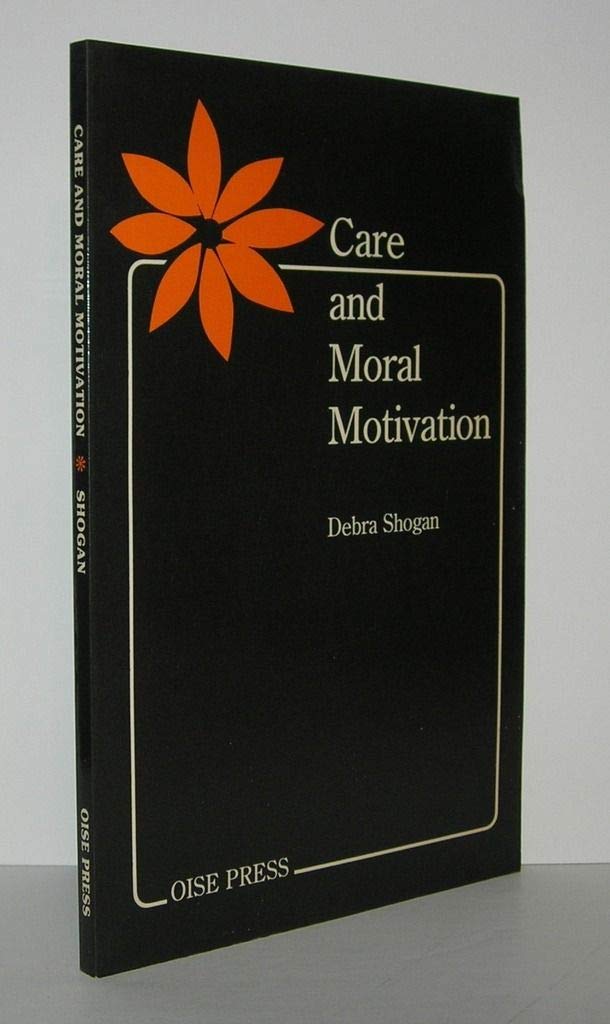

 |

|

The average rating for Care and moral motivation based on 2 reviews is 4.5 stars.
Review # 1 was written on 2011-09-30 00:00:00 Jason Billig Jason BilligCan We Be Good Without God?: Biology, Behavior, and the Need to Believe by Robert Buckman “Can We Be Good Without God?” is an interesting book on the biology of belief with emphasis on religious beliefs. With the use of sound science and logic Dr. Buckman proceeds to build an intellectual foundation that addresses the key premise of his book, can we be good without God? This 276-page book is broken out in the following three parts: Part One – To Believe is Human, Part Two – Belief and Behavior, and Part Three – Can We Do Better? Positives: 1. Well written, accessible prose for the masses. 2. Great use of science, in particular neuroscience to explain key concepts of the book. 3. Even-handed, respectful tone throughout. 4. Great logical format that builds the foundation of key concepts that ultimately lead the reader to a satisfactory conclusion. 5. Educational and insightful. 6. Fascinating look at the concept of causality and the afterlife. 7. Interesting look at religious rituals. 8. The purpose of religion. 9. Beliefs and human societies. The strong predilection for worship. Humankind and the relationship with mythology. 10. Great wisdom and thought-provoking ideas: “What all myths have in common is very important: they all illustrate humankind's very deep longing, almost an ache-to be rescued. We all yearn for redemption, the deep primeval hope that whatever our current problems, there is somebody out there who will come in and rescue us. The ultimate longing, of course, is for salvation from death, the hope of an everlasting afterlife, a resurrection.” 11. The problem with myths. 12. The neurology of belief. The author does a wonderful job of using neuroscience to explain how the brain has a central role in human psychology. 13. Fascinating scientific speculations…temporal lobe epilepsy and Joan of Arc. 14. Fascinating scientific observations…”the more sensitive your temporal lobe is, the more likely it is that you will have regular (and deep) religious experiences.” 15. What science is. 16. An insightful look at crowd behaviors. Really learned something here. 17. Knowledge obtained through the Milgram experiments. 18. The real purpose behind prayers. Interesting. 19. The essential features of a mob and riots. 20. Great quotes, “the reward is not a guarantee of life eternal, but is at least a way of dealing with the fear of death.” 21. Values of beliefs. 22. The ultimate desires of humans. 23. How the evolution of human knowledge has impacted superstitions. 24. The dangers of religious beliefs. 25. Good advice on what we can do, “We cannot all agree on what is good, but we can start by agreeing to avoid something that is totally bad.” 26. The meaning of life. 27. Links worked great! Negatives: 1. With so many good references the book warranted a bibliography. 2. The book was originally released in 2002; there has been a lot of progress made in neuroscience since then. It doesn’t contradict the main premises of this book…if anything it solidifies it. 3. If you are looking for a book to help debate the non-existence of God or gods this is not what this book is about as the author clearly states. In summary, this is a very solid and enjoyable book to read. Dr. Buckman met my expectations of explaining how beliefs affect our behavior. The combination of good science, logical and lucid thinking is a great formula. If you are interested on religious beliefs and how it affects our behaviors, this is a very good book to begin with or compliments other books on the topic. I give it a strong recommendation. Further suggestions: “The Believing Brain” and “Why People Believe Weird Things” by Michael Shermer, “Sense and Goodness without God” by Richard Carrier, “Superstition” by Robert L. Park, “Science and Nonbelief” by Taner Edis, “Society without God” by Phil Zuckerman, “The Brain and the Meaning of Life” by Paul Thagard, “Hardwired Behavior” by Laurence Tancredi, “Braintrust: What Neuroscience Tells Us About Morality” by Patricia S. Churchland, and “SuperSense” by Bruce M. Hood. |
Review # 2 was written on 2017-04-06 00:00:00 John Harry John HarryRobert Buckman looks at what religion does for people and communities and also where it falls short and why. A readable book. The end result ' Spoiler alert' is that we don't have to worry that atheists are going to ruin the world with their lawless behavior. Sure, a few might, but so have a few ruined peoples' lives due to religious belief. As humans, we should be able to believe whatever we wish as long as our actions are good. Also we need to work on fixing problems on this planet together and not wait for God to take care of it. Both things i can believe in! |
CAN'T FIND WHAT YOU'RE LOOKING FOR? CLICK HERE!!!